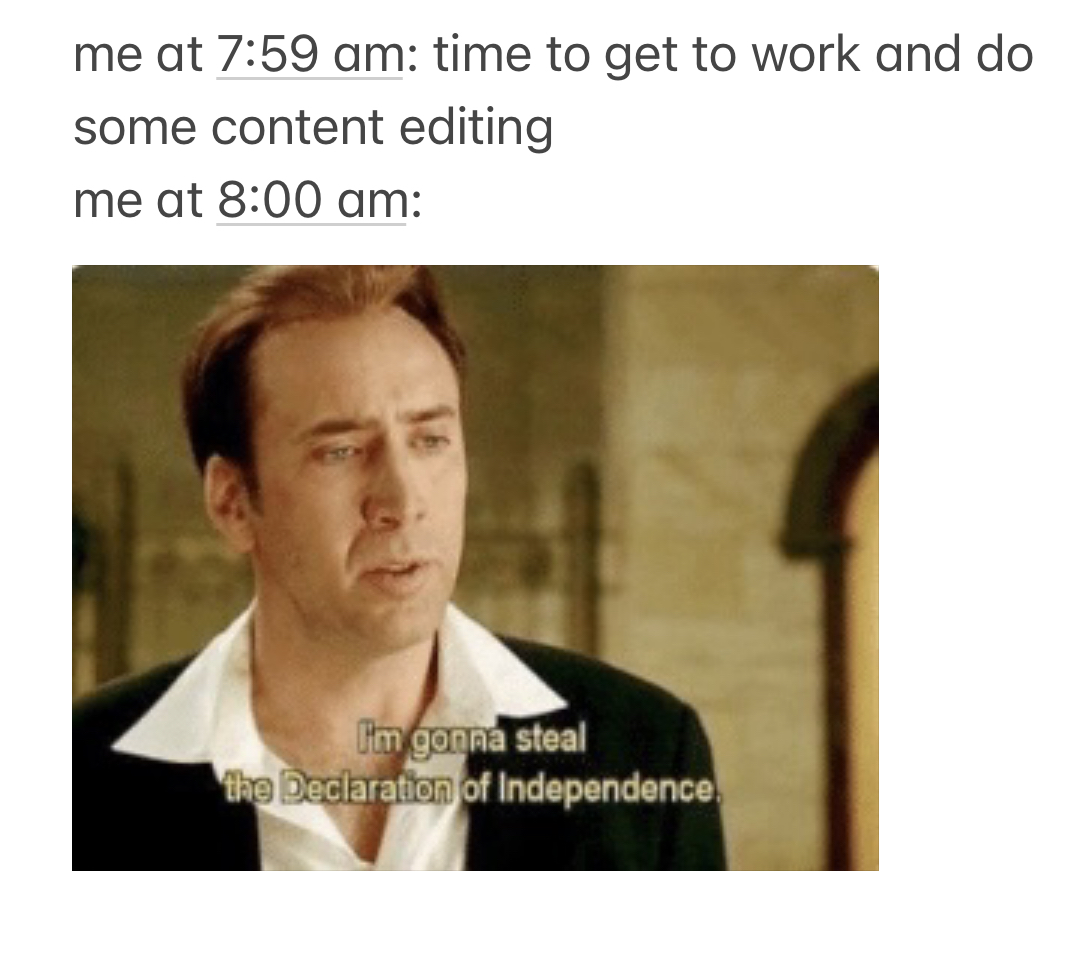‘National Treasure’ gave me more faith in
the U.S. government than any history class
By Emma Deines, Content Editor
As a VHS senior and a voting-age U.S. citizen, I’ve had a lot of opportunities to feel supported by the U.S. government, both in lived experience and the classes I’ve taken over the years. Between the U.S. government’s shifty history and the recent attacks on human rights, my faith in the U.S. government has gone from that of a wide eyed daughter of a centrist military family to a young adult who feels the need for change in their bones.

The 2004 cinematic masterpiece that is the movie ‘National Treasure’ filled me with a sense of nationalism that I haven’t felt in years. Benjamin Franklin Gates, played by Nicholas Cage, is on a mission to find the treasure left by our founding fathers. He is racing against the bad guys, who only want the money, and who are willing to cause some trouble to get there.
Nationalism has always been complicated for me. I come from a military family, and being proud of our country was always an expectation, not a choice. As I learned more about U.S. history, and how our government was built to disadvantage so many people, I began to lose faith in the ‘Land of the Free’. In U.S. history, nationalism was often based in supremacy. It didn’t feel right to feel connected to a county that had caused, and is causing, so much harm.
The National Treasure movie didn’t erase any of those feelings, but it offered up some new ones. When the team escapes a chase by hiding in Independence Hall and Ben is overcome by the fact that the last time the Declaration of Independence was in that room, it was being signed, I felt overwhelmed along with him. When Ben decided to share the treasure with the world’s historical museums instead of selling it, I felt proud of him for making that choice. The idea that the U.S. is the best because ‘we found this huge treasure that we’re going to share with the rest of the world’ feels a lot safer than the idea that the U.S. is the best because ‘it just is’, or because of reasons rooted in racist history.
Maybe it was the fact that the FBI turning a blind eye was a good thing for once. Maybe it was the strong message of civil disobedience—how sometimes doing the right thing means breaking the law. Maybe it was the idea that throughout U.S. history, our strongest leaders worked together, even if it was only to keep the treasure out of the wrong hands. But somewhere between historical clues, high speed car chases, and stolen national artifacts, I felt more connected to the people in charge of my future, and the people in charge of my present.
In a time when my faith in the U.S. government is at its shakiest, the voice of Nicholas Cage reciting the Declaration of Independence reminds me of our nation’s founding fathers, who understood that they were not perfect, and that faulty systems of government can’t last forever.
“Of all the words written here about freedom, there’s a line that’s at the heart of all the others: ‘But when a long train of abuses and usurpations, pursuing invariably the same Object evinces a design to reduce them under absolute Despotism, it is their right, it is their duty, to throw off such Government, and to provide new Guards for their future security.’”
